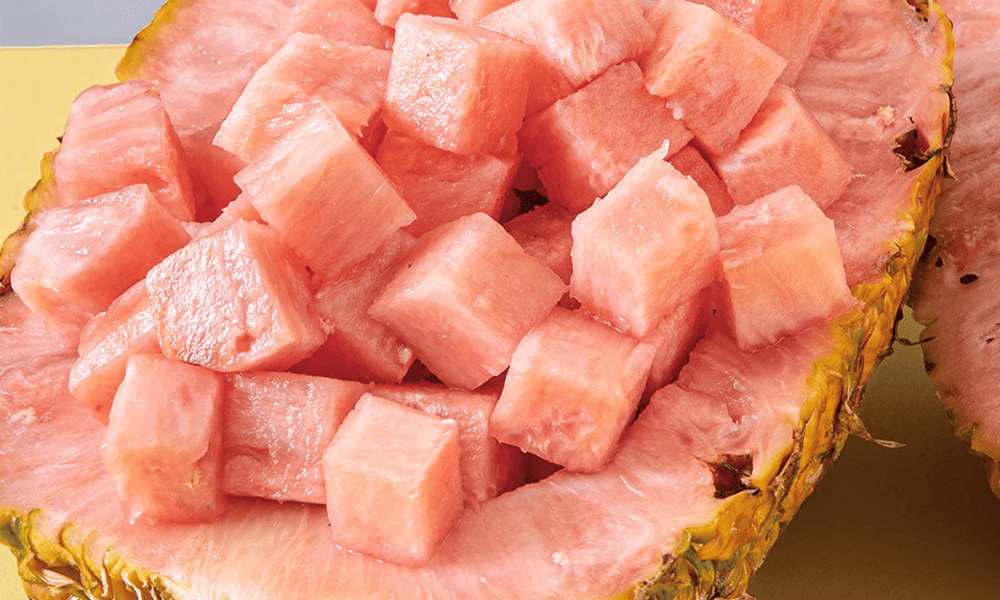In the province of Alajuela, Costa Rica, the Costa Rican Phytosanitary Service (SFE) has uncovered illegal plantations of pink pineapple in the Pital de San Carlos area. These genetically modified pineapples were patented by Fresh Del Monte, granting the company exclusive rights to cultivate and commercialize the product.
Fresh Del Monte had recently reported the issue to the authorities, leading to a subsequent operation on farms in Pital de San Carlos last Friday. Pink pineapples, which are sold internationally by Fresh Del Monte for $39, are only supposed to be planted in the Buenos Aires area. The SFE’s director, Nelson Morera, confirmed that the operation resulted in the destruction of the illegal crops in three out of the five plantations targeted.
The National Chamber of Pineapple Exporters and Producers (CANAPEP) expressed concern over the situation and demanded the publication of the farms involved, while Fresh Del Monte’s authorization for research and development of this pineapple variety adhered to all necessary protocols and regulations.
Fresh Del Monte’s substantial investment of $20 million over 17 years in researching pink pineapples underscores the significance of this discovery of illegal plantations. As the sole authorized cultivator and commercializer of this genetically modified fruit, the company’s exclusivity is protected by patents.
Concerned about the issue, Fresh Del Monte reported the illegal plantations to the authorities, leading to an operation in the Pital de San Carlos area. During the operation, officials focused on five farms, successfully eliminating the illegal crops in three of them. Despite the lack of cooperation from those responsible for the remaining farms, a report has been filed with judicial authorities.
The pink pineapples in question are sold internationally by Fresh Del Monte, and each fruit comes with a certificate of authenticity. Countries such as Qatar, Canada, Saudi Arabia, the United Arab Emirates, Kuwait, Hong Kong, Lebanon, and the United States receive these unique pineapples.
However, the discovery of illegal plantations has raised concerns within the pineapple industry. The National Chamber of Pineapple Exporters and Producers (CANAPEP) expressed its worry and urged for the disclosure of the farms involved in the illegal cultivation. CANAPEP’s president, Abel Chaves, emphasized their commitment to take appropriate action, including the removal of the producers involved, in accordance with the chamber’s bylaws.
While the SFE’s director, Nelson Morera, refrained from providing detailed information about the operation, he confirmed that the SFE is preparing an official report. It is worth noting that the pink pineapple variety is registered with the SFE Department of Biotechnology and complies with all necessary requirements.
The Ministry of Agriculture and Livestock (MAG) granted Fresh Del Monte the authorization to research and develop this new pineapple variety, ensuring the company adhered to intellectual property registration, production and export permits, and biosafety measures.
The discovery of illegal plantations raises questions about intellectual property infringement and the potential consequences for the pineapple industry. As authorities further investigate the situation, it is crucial to maintain the integrity of the pineapple sector while holding accountable those responsible for unauthorized cultivation of the pink pineapple variety.






